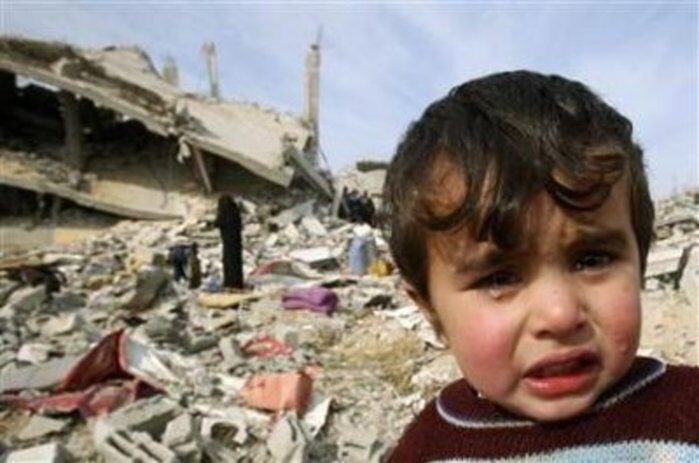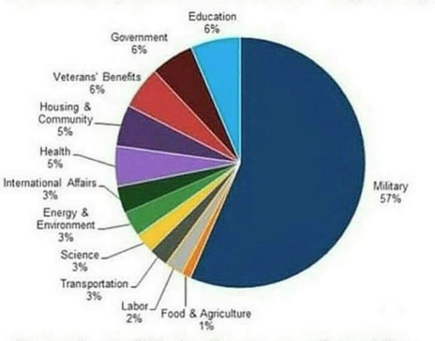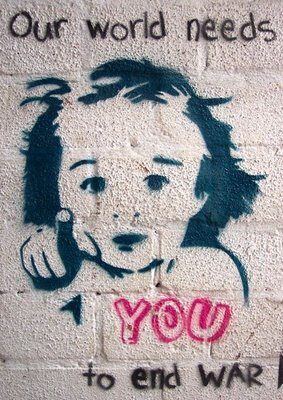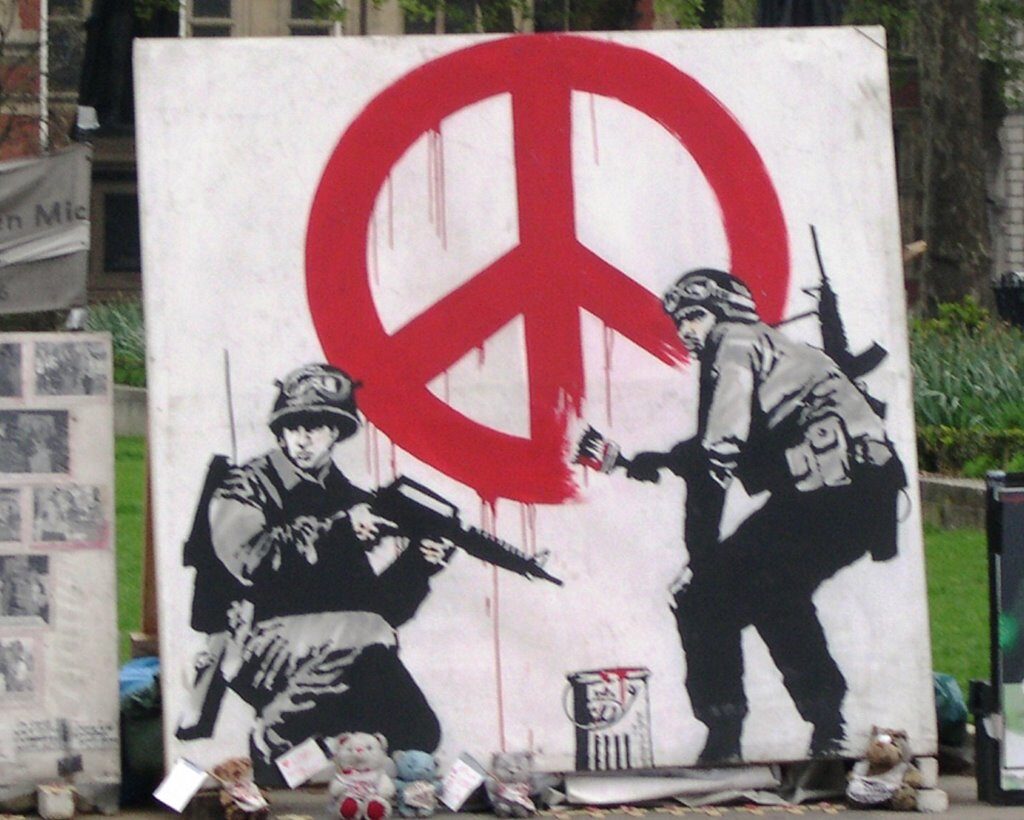Moving Beyond War
We're overdue for a shift toward a more just, cooperative and ecologically sustainable culture. If not now, when?
"We suffer from the considerable gap between our idealized self-image as a democratic, peace-loving nation and the reality of our history of genocide, slavery, discrimination, exploitation of working people, and imperial expansion."
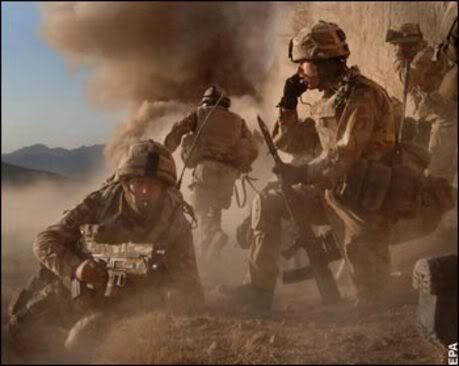
The U.S. "empire's hierarchy of dominance creates an illusion of order and security. Feeding on its own illusions, Empire becomes a kind of collective addiction - a psychological dependence on domination, violence, and material excess."
"We now have the means to end the five-thousand-year era of Empire that has reproduced hierarchies of domination at all levels of human organization"... including our schools, businesses, governing bodies and churches.
Unfortunately there are still many "leaders of the most powerful U.S. institutions who pursue Empire as a holy mission and are prepared to use every means - from lies to assassinations to perpetual war - to block progress toward justice for all and to roll back the gains already achieved."
"A necessary part of the work of the Great Turning is to neutralize their power by exposing their lies, methods, and imperial agendas." www.davidkorten.org/great-turning-book

"Our overriding purpose, from the beginning through to the present day, has been world domination - That is, to build and maintain the capacity to coerce everybody else on the planet: non-violently if possible; violently if necessary. But the Purpose of the United States Foreign Policy of domination is not to just make the rest of the world jump through our hoops; the purpose is to facilitate our exploitation of foreign resources." Ramsey Clark, former US Attorney General
"Since World War II, during a supposed golden age of peace, the United States military has killed or helped kill some 20 million people, overthrown at least 36 governments, interfered in at least 84 foreign elections, attempted to assassinate over 50 foreign leaders, and dropped bombs on people in over 30 countries. The United States is responsible for the deaths of 5 million people in Vietnam, Laos, and Cambodia, and over 1 million just since 2003 in Iraq." (David Swanson - WorldBeyondWar.org)
The United States has “special forces” operating in two-thirds of the world’s countries and non-special forces in three-quarters of them.
"The U.S. government as of 2017 provided military aid to 73% of the world’s dictatorships." WBW
Democrats and Republicans alike vote for bloated military budgets. In 2021 the military budget was $768 billion ... far more than the Pentagon even asked for, and more than the budgets of the next 11 countries.
To top it all off:
"The greatest single assault on the environment comes from one agency: the Armed Forces of the United States." (Barry Sanders - The Green Zone: The Environmental Costs of Militarism.)
The U.S. military burns through 320,000 barrels of oil a day, making the Pentagon the largest institutional user of petroleum products. That tally doesn't factor in fuel consumed by contractors or the energy and resources used to produce bombs, grenades, missiles or other weapons.
Despite its status as top polluter, the Dept. of Defense has a blanket exemption to commitments made by the U.S. to curb greenhouse gas emissions. (www.projectcensored.org)
World Beyond War has a blueprint for an alternative security system – one in which peace is pursued by peaceful means.
Be sure to check out their complementary online study guide:
Study War No More: A Concerned Citizens Study and Action Guide for “A Global Security System: An Alternative to War.”
A Global Security System relies on three broad strategies for humanity to end war:
- demilitarizing security
- managing conflicts without violence
- creating a culture of peace
* Strategies for demilitarizing security are directed at reducing dependency on militarism.
* Strategies for managing conflict without violence are focused on reforming and/or establishing new institutions, tools and processes for assuring security.
* Strategies for creating a culture of peace are concerned with establishing social and cultural norms, values, and principles necessary for sustaining a thriving peace system and the means to spread it globally.

More than 2000 years ago,"the great Greek philosophers reasoned that the good society is one that supports every person in their journey to the full realization of the highest potentials of their humanity and, in so doing, reproduces the conditions of its own healthful function." David Korten
Can you imagine how much more peaceful and safe a planet we'd have if everyone's basic needs were met?
What if everyone had clean food, air and water? And a decent education and meaningful work?
What if every region met their energy needs using the natural resources that are right at hand? --------------- Would there still be war? --------------------
Check out: War Made Invisible by Norman Solomon
"From Iraq through Afghanistan and Syria and on to little-known deployments in a range of countries around the globe, the United States has been at perpetual war for at least the past two decades. Yet many of these forays remain off the radar of average Americans."
"Back at home, Solomon argues, the cloak of invisibility masks massive Pentagon budgets that receive bipartisan approval even as policy makers struggle to fund the domestic agenda."
When an international Gallup poll asked which country is the greatest threat to world peace, the U.S. won decidedly. No other country came close.
In 2021 the United States spent $801 billion on its military. This represents 39 percent of the world’s military spending. That’s more than the next nine countries combined. Institute For Policy Studies
Over half the U.S. budget is devoted to the military-industrial complex. By comparison, Germany spends 3% of it's budget on the military... (though that's on the rise due to the war in Ukraine.)

"Every gun that is made, every warship launched, every rocket fired signifies, in the final sense, a theft from those who hunger and are not fed, those who are cold and not clothed. This world in arms is not spending money alone. It is spending the sweat of its laborers, the genius of its scientists, the hopes of its children." Dwight Eisenhower
According to "World Military & Social Expenditures", the cost of a U.S. intercontinental ballistic missile would:
- feed 50 million children
- build 160,000 schools,
- or open 340,000 health centers. "The Real Wealth of Nations"
- http://www.rianeeisler.com/
"A nation that continues year after year to spend more money on military defense than on programs of social uplift is approaching spiritual death." Martin Luther King, Jr.
"Peace will not come out of a clash of arms but out of justice lived and done by unarmed nations in the face of odds."
- M. Gandhi
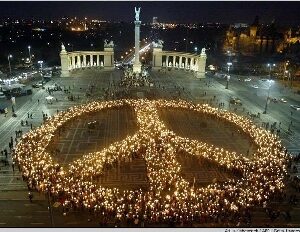
"A global cultural and spiritual awakening is building momentum toward the birthing of a new era of Earth Community based on a radically democratic partnership model of organizing human relationships ...
"This awakening gives us cause for hope." Raine Eisler

Let's pray that soon, very soon we'll experience a cultural shift beyond war and empire.
War No More: The Case for Abolition — This book, presents what numerous reviewers have called the best existing argument for the abolition of war, demonstrating that war can be ended, war should be ended, war is not ending on its own, and that we must end war.
